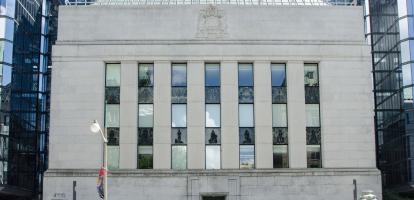Toronto is a creative, resilient city. The underlying strength of our economy, built on world-leading talent and diverse, innovative local businesses, will enable us to rebound from the COVID-19 pandemic. That is the good news.
Tackling the uneven impact of the current crisis — disastrous for some sectors but profitable for others, devastating for many people but enriching for others — will take hard work and tough choices. As members of the city’s Economic and Culture Recovery Advisory Group, we are committed to building an inclusive economic recovery that not only gets the economy and our cultural realm back on track, but also remedies the structural inequities that create barriers to prosperity for many of our racialized and economically disadvantaged communities. Doing so would enable the city to use our recovery as an opportunity to rise above long-standing constraints and build back stronger.
The advisory group looked at what the city was planning, or was already doing, to support and stabilize the economy. Our group was diverse, enabling us to explore recovery ideas strategically, tempered by a granular, street-level understanding of the challenges, and the opportunities, that lie ahead.
Some COVID-related restrictions will remain in place for some time, so it is critical that the city makes it easier for businesses to restart, expand, and thrive once it is safe to reopen. We brought forward five ideas that we believe can strengthen the city’s current recovery efforts, and pave the way for further positive change.
1. Lead North American cities in linking safety to productivity. Broad economic recovery requires public confidence. Toronto can take the lead by expanding its collaboration with private sector and government partners to help employers reopen quickly when it can be done safely. An example of this approach is the Toronto Region Board of Trade’s safe-reopening Pilot Zone projects in the Financial District, Scarborough Centre and Pearson Employment Area. The projects have brought area businesses together with city officials and public health experts to establish comprehensive, effective local protocols for safe reopening. We also need a long-term communications strategy focused on restoring public confidence in the safety of commercial and cultural activities.
2. Work with the TTC and major employers to encourage a safe return to work using public transit. Restoring confidence in the commute to work will require government, the TTC and employers to collaborate on innovative marketing, communication and incentives. Tactics worth considering include off-peak fares, employee discount programs, and the introduction of staggered working hours. The city should also continue to advocate for provincial funding to support the TTC’s efforts to reduce crowding and expand transit capacity.
3. Keep commerce moving with a co-ordinated approach to traffic and public-realm improvements. Initiatives like ActiveTO, which reserves selected streets for pedestrians and bicycles, and CafeTO, which enables restaurants to install curb-lane patios, have provided an important lifeline for both people and small businesses, and made Toronto’s streets more vibrant and welcoming. The city must collaborate with local businesses to determine if these temporary measures should be made permanent, and ensure that while taking this unique opportunity to enhance the quality of life for residents, traffic keeps moving, supplies are delivered and gridlock is reduced.
4. Expand and enhance existing initiatives to rebuild local tourism. Toronto has a multitude of interesting places to discover, for residents as well as visitors. The city’s ShowLoveTO campaign incorporates a number of activities that encourage residents to safely explore their neighbourhoods, connect with neighbours and support local artists and businesses. The city also plans to open a new Office for Creative Space to improve access to safe, affordable and accessible spaces for cultural creation and consumption. The city should continue to work with its partners in the hospitality sector to enrich such programs, augmenting tangible benefits for businesses, cultural organizations, and residents alike. As travel restrictions loosen, the city can expand campaigns to attract visitors from across the province, country, and eventually, the world.
5. Support retail innovations to promote local resilience and expand opportunities for small businesses. Toronto has taken steps to support small businesses, which have suffered deeply during the pandemic. Our advisory group urges the city to build on the success of current COVID recovery initiatives, such as an expanded Digital Main Street and a new ShopHERE e-business platform which bring small, local enterprises the enhanced, web-based tools they need to compete in a socially distanced marketplace. The city should also intensify its collaboration with private-sector partners by jointly establishing a fund to support business innovation. Toronto can also improve access to working capital for small businesses by partnering with financial institutions to ensure that such businesses can continue to borrow as they adjust to supply-chain disruptions, new patterns of demand and lingering public health and safety constraints.
The ultimate success of Toronto’s recovery efforts — measured by a stronger, more equitable economy — depends on many epidemiological and economic factors beyond the city’s control. However, as vaccination rates improve, new infections decline and restrictions on social behaviour lift, our economy will rebound. We are hopeful that by addressing, informing and supporting the city’s recovery, our group’s recommendations will help Toronto restore its economic and cultural vitality, fully commit itself to equity and accelerate its transformation into the best possible version of itself.
Next week, other advisory group members will use this space to look beyond purely economic measures to discuss our recommendations furthering the city’s anti-racism and inclusion agenda. A successful recovery must improve prospects for culture and business throughout the city, and all of its communities.
Andrea Elliott is executive vice-president of Moose Knuckles Canada. Joe Manget is chairman and CEO of Edgewood Health Network. William Robson is CEO of the C.D. Howe Institute. Members of the Economic and Culture Recovery Advisory Group participated in their personal capacities.





